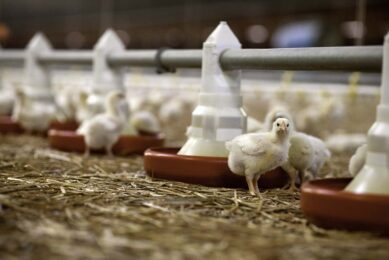NFU comments on antibiotic-resistant E. coli statement
The UK Soil Association has issued a press release on the subject of antimicrobial resistance, which says that ‘shocking new levels of antibiotic-resistant bacteria in intensively reared farm animals have the potential to spread to humans’. This has prompted an angry response from the NFU.
The release also includes a quote from Compassion in World Farming, which suggests that antibiotic resistant E. coli is present on one in three of all dairy farms in England and Wales.
Philip Lymbery, from CIWF said: “The intensification of agriculture, with pigs and poultry kept in cramped, unhygienic conditions, and dairy cattle pushed harder and harder to produce more milk, has led farmers to rely on hugely important antibiotics to treat the diseases this is causing. We are now getting the evidence that this has real implications for human health too.
“It is high time that Defra stopped downplaying the evidence and realised that the only way to address this problem is to start keeping farm animals in more natural and less intensive ways.”
In response the NFU, whose aim is to promote the highest standards of food safety, animal health and welfare and the responsible use of medicines in British livestock farming, has stated that it takes this issue very seriously. We encourage our farming members to be guided by the RUMA guidelines and believe that antibiotics should be used as little as possible but as much as necessary.
Antibiotics are not routinely used in animal husbandry in the UK. At one point very low doses of antibiotics were allowed to be added to feed because they improved the growth rates of some farm animals but this practice has been banned throughout the EU since January 1 2006. Antibiotics are now only used under the prescription and care of a veterinary surgeon to combat bacterial infections affecting sick animals, in the same way that humans use antibiotics.
Withdrawal periods from the human food chain for meat and animal products following any therapeutic antibiotic use in the animal are in place to protect consumers from inadvertent consumption of these substances. The NFU promotes positive farm health planning, with farmers and vets working together, to ensure the health of the animals on farm and there are strict withdrawal periods.
NFU Head of Food and Farming Kevin Pearce said: “Like people, animals get ill and need medicines. This is true regardless of the type or management system on a farm and there is no evidence that more intensive farming systems use more veterinary medicines, or particularly use more antibiotics. Furthermore there are strict withdrawal periods before products enter the food chain.
“The NFU is fully supportive of the technical and scientific investigations and research into this issue. The VLA Conference is the ideal forum for scientists, vets and industry representatives to come together to hear about new developments and understanding in the fields of veterinary medicine research. The pathetic attempts by the Soil Association to hijack this conference in the press to pursue their own agenda demonstrates a complete lack of understanding about the use of antibiotics on farm. This is a cynical attack designed to wreck consumer confidence in the wider food market”.
Related website
• NFU
• The Soil Association













